The Value Toolkit | Value Based Decision Making
THIS MONTH marks the launch of the beta-testing phase of the Construction Innovation Hub’s Value Toolkit; a significant forward step towards the adoption of an outcome-based approach to delivery across the construction industry.
The Toolkit provides a much-needed suite of tools and processes which empower clients and policy makers to make informed, value-based decisions that will drive better social, economic and environmental outcomes.
This pilot phase, which will run over the next six months, is intended to rigorously test and fine tune the Toolkit’s processes and suite of tools with clients and construction professionals, to deliver maximum benefit.
Whilst the Toolkit itself is solutions agnostic, its release to the mainstream promises a cultural shift that should unlock significant opportunities for the offsite sector. The market has long advocated a focus beyond immediate capital cost and instead towards broader benefits such as improved productivity, quality and certainty. Finally, the conditions appear ripe to deliver this.
The shift in social context, due to the aftershocks of the pandemic and emergence of new policy has catalysed a movement to translate aspiration to reality. The Construction Playbook for example, encourages procurement strategies that optimise long-term value informed by the application of project scorecards such as the Toolkit. The growing momentum behind this strategic intent affords the offsite sector a unique opportunity to respond with innovation.
The Toolkit is based upon a framework that evaluates value against a 4 capitals model – encouraging clients to define value holistically, in a manner that can be measured and communicated clearly and consistently.

Figure 1: 4 Capitals and Categories Framework
Whilst the language and format may appear new, the principles resonate with long-established benefits of offsite. For example, financial outcomes captured within the ‘produced’ capital extend beyond capital cost but instead reflect a lifecycle horizon; also including headings of return, resilience and production. Earlier revenue or reduction of debt generated through faster delivery, efficiencies through manufactured production and consistency of quality are examples of outcomes that may be captured under this capital – all of which align to strengths of offsite delivery.
The framework presented by the Toolkit therefore offers the potential to break the value-cost trade-off and enable integrators, offsite manufacturers and suppliers to create new market spaces – ‘blue oceans’ (a concept coined by consultants Kim and Muborgne). Whilst the majority of construction business strategies focus upon how to compete better in a fiercely competitive market (‘market competing), this new paradigm offer potential to instead move towards ‘market creation’. The significance of this opportunity is not to be underestimated.

Figure 2: Blue Ocean Strategy (Kim and Muborgne)
With a new definition of value, new measures of success will emerge; in preparing to respond we would encourage solution providers to not only embrace the Toolkit but carefully consider three key steps
-
Step 1: Understand the new language of ‘Value’ – the principles of better outcomes, framed within a 4 Capitals approach
-
Step 2: Review your business, service or product, against the 4 capitals framework, to define your value proposition (i.e where and how your solutions create / add value)
- Step 3: Collate and grow your dataset in evidencing your added value
Steps 1 and 2 are key to ensuring that you can clearly articulate your value proposition in a manner that anticipates the direction procuring authorities will move towards. Step 3 and the principles of data collation are critical in driving the industry towards an evidence-based position.
In 2020 September / October edition of the Offsite Magazine, Graham Cleland outlined the power of data-centricity. However, he was clear in making the point that ‘it can only be realised if an enterprise has a true, granular understanding of what data is important.’ The Value Toolkit begins to provide clarity on how this may be framed for the benefit of your customers and broader outcomes. With early adoption of digital technologies and a platform-based approach more prevalent, the offsite industry has an immediate headstart in demonstrating the link and thread between solutions, outputs and outcomes.
With strong links between low-carbon solutions and enhanced social value, the potential for offsite construction and platform approach to demonstrate consistently strong value profiles that span human, natural and social capitals, as well as benefits in within the produced is real. If embedded at scale, this can represent a unique opportunity for the offsite sector to assume a place at the heart of a new market; one that delivers better outcomes for economy, environment and broader society.
Akerlof are partners to the Construction Innovation Hub and Industry Lead for the Value Toolkit




